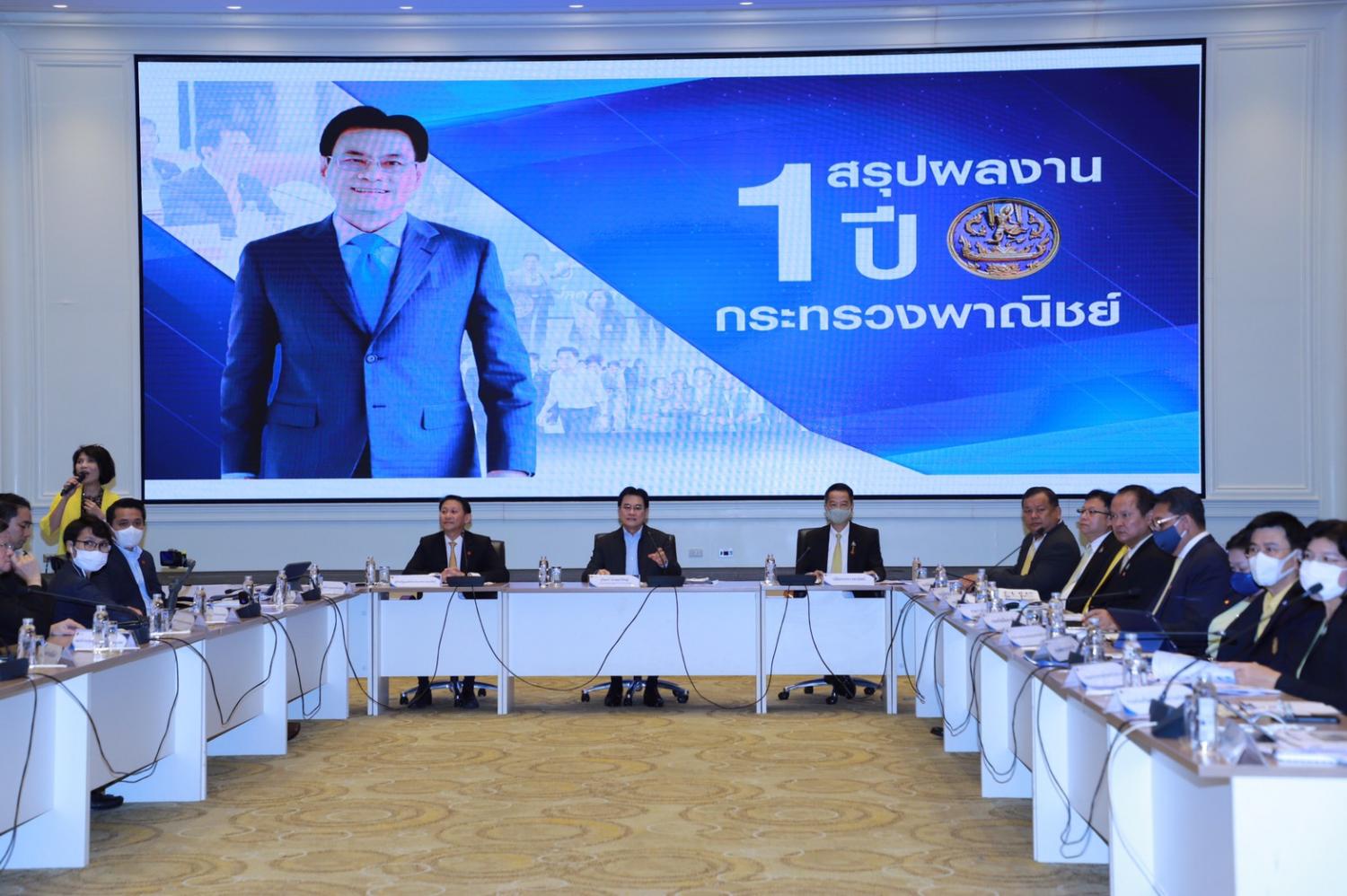
Commerce Minister Jurin Laksanawisit vows to continue pushing ahead with a price guarantee for farmers, export stimulus, cost-of-living supervision and trade talks as his top priorities.
"I'm quite satisfied with having worked with Commerce Ministry officials to drive 16 projects, particularly for the farm price guarantee scheme under which as much as 71.2 billion baht has been transferred to 7.29 million households of rice, oil palm, rubber, tapioca and corn farmers in five months," Mr Jurin said yesterday, speaking of his one-year performance.
According to Mr Jurin, the ministry is scheduled to submit the extension of price guarantee schemes for five major crops for cabinet approval soon.
On the export stimulus front, he said the ministry established the joint public and private sector consultative committee on commerce for the first time to drive the country's exports and promote cooperation between state officials and the private sector to boost exports and tackle trade-related obstacles.
Commercial counsellors have been assigned to work as the country's salesmen to boost exports and cope with the global economic slowdown and the coronavirus crisis.
The commercial counsellors posted in each country are required to conduct individual plans to retain or stimulate trade, while provincial commerce officers have been ordered to function as provincial salesmen to coordinate with the local private sector and farmers to enhance market connectivity.
Mr Jurin said the ministry has led private teams to sell products around the globe, including in China, India, Turkey, Germany and the US, and signed memorandums of understanding to sell products worth 94.82 billion baht.
The ministry is estimated to generate 54.19 billion baht this year from trade exhibitions and trade missions.
Border trade promotion has generated 1.028 trillion baht during Mr Jurin's one-year tenure, and he has pledged to open more checkpoints at Chiang Dao district in Chiang Mai.
Mr Jurin said the ministry initiated programmes to sell 8,763 items at low prices to help alleviate the cost of living for Thai consumers, with the measures estimated to have saved them more than 1 billion baht.
In international trade negotiations, the ministry pushed for the conclusion of Regional Comprehensive Economic Partnership (RCEP) talks late last year after seven years of prolonged negotiations.
The RCEP is a proposed trade agreement between the 10 member states of Asean and six dialogue partners: China, Japan, South Korea, India, Australia and New Zealand.
Negotiations on the RCEP started in late 2012 at the 21st Asean Summit in Phnom Penh. The pact is scheduled to be signed in Vietnam this year.
In last-minute talks on Nov 4, 2019, with Thailand as Asean chair, India pulled the plug on joining the RCEP over unresolved issues, especially those concerning agricultural tariffs.
India later announced that it would not be joining the pact during this year's Asean Summit in Vietnam.
India is concerned that the deal could affect the livelihood of its most vulnerable citizens and lead to a rising trade deficit and a flood of imports, especially cheap goods from China.